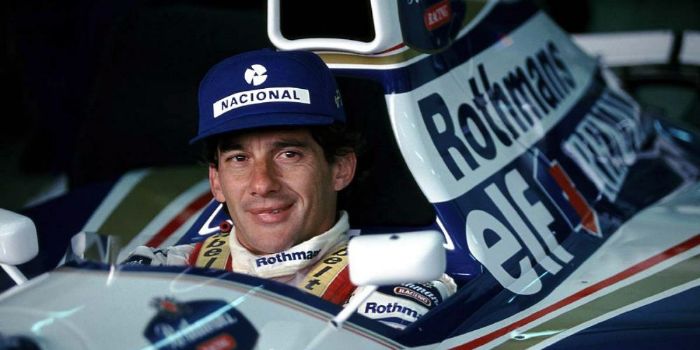Most destinations in Formula 1 are associated with some spectacular glory. They bring to mind some dizzying height against which the sport expands in grandeur. A corner, a tight right-hander, an extended straight or any hairpin bend- there’s an irrefutable love for a part of a circuit where some colossal feat was achieved. You have a feel for the Parabolica at Monza, a soft corner for Eu Rouge at Spa and many exceptional memories with the Massenet at the Principality of Monaco.
The fatal events at Imola
But not since the 68-year-history of the sport has one singular corner been berated as much as the Tamburello, a sharp left-hander, a tight braking zone at the ill-fated Imola. Perhaps, a track that has rightly been discontinued- for it may never be pardoned for giving a sport of epic proportions it’s most damning blow.
Many moons ago, it consumed F1’s demigod, and arguably, its most ravishing talent ever: Ayrton Senna.
Every sport has at least one illustrious name by whose achievements, it flexes its muscles. For Boxing, there’s Muhammad Ali. For Golf, there’s Arnold Palmer. There’s Sir Donald Bradman for Cricket and there’s Pele for Football. But for F1, there’ll always be Ayrton Senna. Lap-after-lap. Circuit-upon-circuit.
Aryton Senna’s era of domination
Whether it was the single-minded focus in acing the Brazilian Grand Prix, 1981 or the journey toward attaining a hitherto less-seen spiritual high at the 1984 Monaco Grand Prix- Senna was an enigma. He was from the earth but his talent seemingly came down from the altar skywards.
Senna was pretty much an anomaly in the system. You don’t score 12 on 10 in a Test. You don’t secure a grade beyond A+. Ayrton Senna was a master of late-braking, he was arguably the greatest defender of a track position, alongside Fangio and set a benchmark for exceptional control under the rains.
Most drivers sit back straight erect, befuddled by the prospect of rains, Senna gently broke into a smile with the possibility. And went about destroying his opponents in exhibiting wet-weather mastery akin to a shark waiting to smother revelers in the ocean.
The Original Regenmeister
Michael Schumacher might be called the Regenmeister, but it was Senna who created a reign of domination, much before the German ace even arrived on the tracks. He was reviled for possessing unreal excellence and revered by both opponents and compatriots.
Back then, not the sedately inspiring Turbo era- Senna and that classic MP4/4- V6 teamed up and massacred all who came in his way of success- where at Monza, Donington Park, Monaco or, Spa-Francorchamps. Race wins were accumulated akin to a stroll in the park, overtaking maneuvers were exhibited with great dexterity and F1 was aced in an iron-fisted dominance.
But truth be told, it ought to be asked was Senna a saint, even as deep inside he felt moved by his religion, feeling an umbilical chord of permanence connected right to god? Few drivers put their rivals as much at risk, braving everything- even the prospect of a near fatality- in course for snatching the lead as Ayrton Senna.
But then, he wasn’t docile on himself either. Senna and sedateness had less to do with one another. No other racing ace has blasted critics away, bemoaning their circumspect approach by quoting, “If you no longer go for a gap that exists, you are no longer a racing driver.”
The Senna element
But you felt, whether as a Murray Walker from the commentary box or as one of his teammates, Alain Prost- albeit with scorn- that Senna was deeply irrepressible. You were both moved in awe and scared of seeing him flirting with mortal danger. Somewhere, away from the glitzy triumphs at his maiden Brazilian Grand Prix win at Interlagos or away from the lap of life- at Donington Park, England- you were struck by Senna’s uncompromising nature. Maybe it swelled in hubris- if it might be said- from a flawed belief hardwired in his conscience when he said, “I’m not designed to come second.”
Was that a rational stance for a man who as ostentatious and ballsy on the track as simple and affable off it?
Rivals who’ve berated every single move of his could possibly not fell out of love of his bravery. Critics, who’ve called him names, knew they couldn’t have pulled half the moves that were an everyday affair for Senna. There’s this romanticism for believing Senna was out of this world. Perhaps his commanding skills in the wets amplified his excellence. Perhaps, his innate compassion for the suffering of the poor and the ability to push himself to the last possible inch of ache for excelling made him second to none.
And perhaps that is why even as Tamburello consumed him in the end, it hasn’t been able to corner his legacy.

